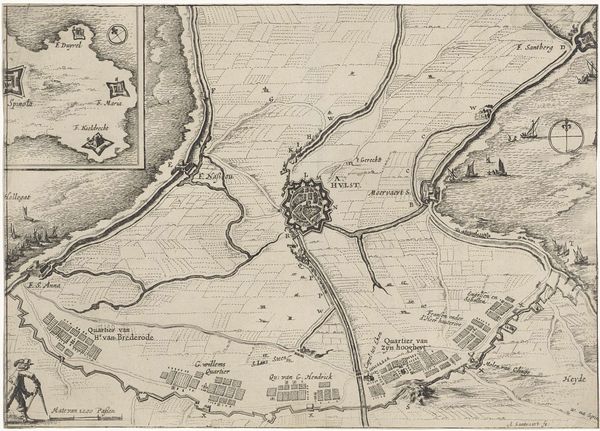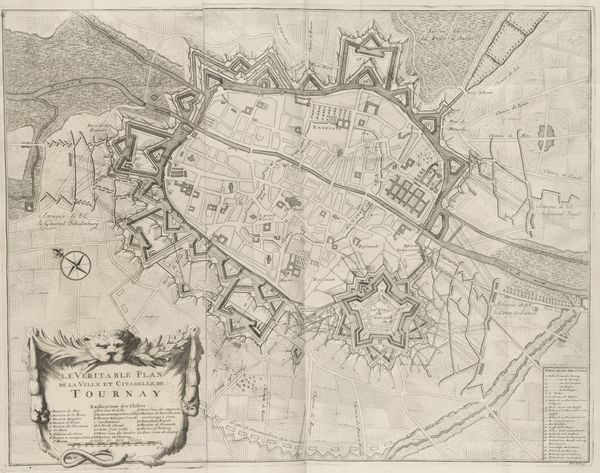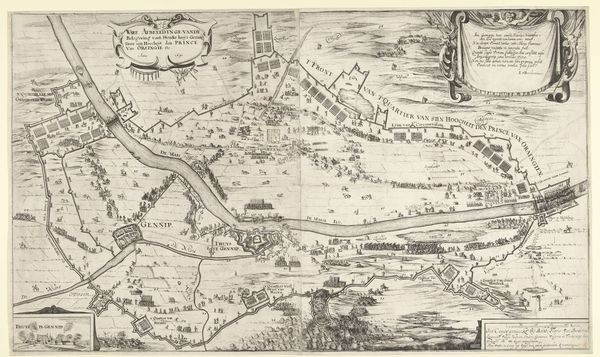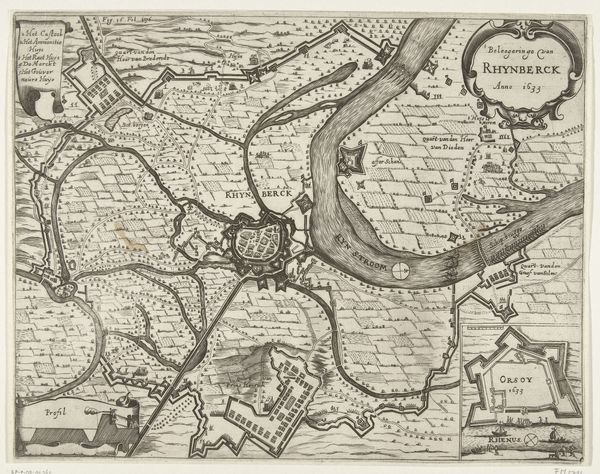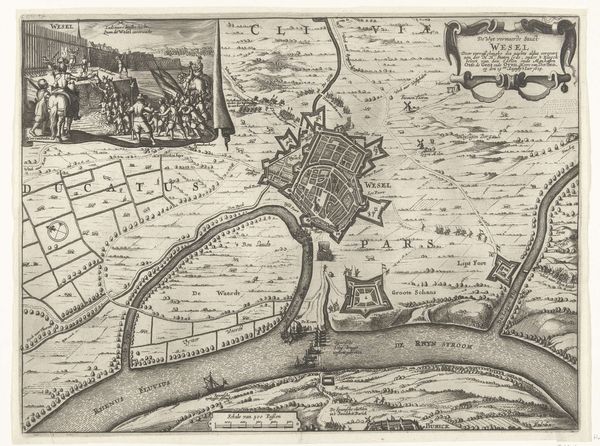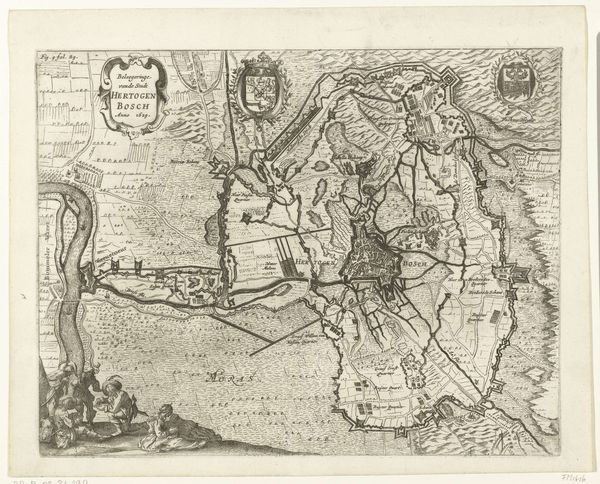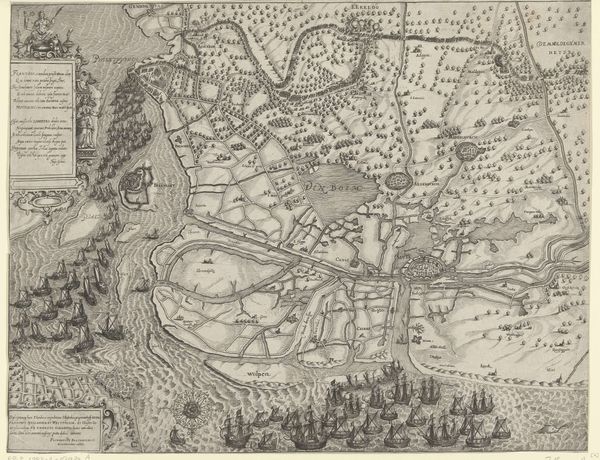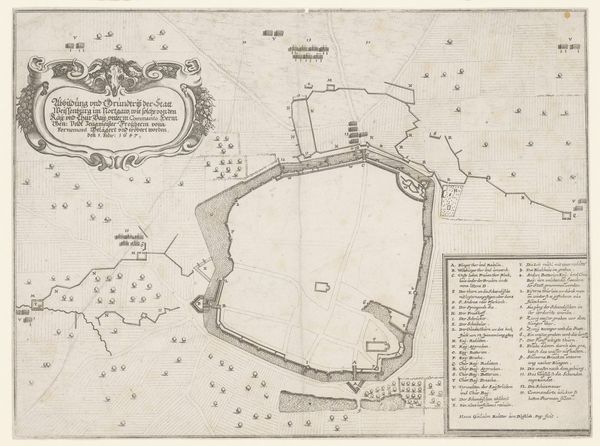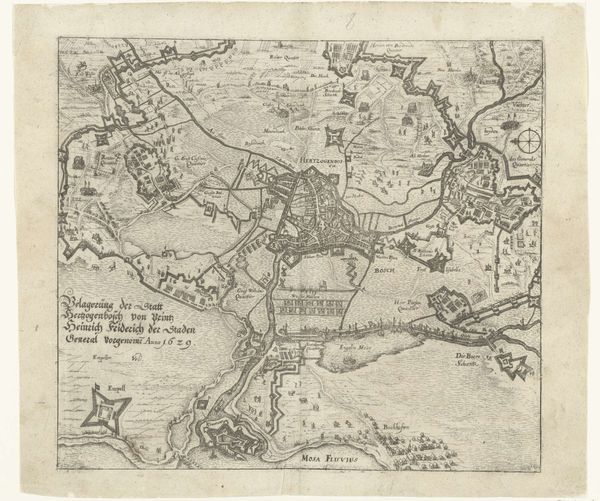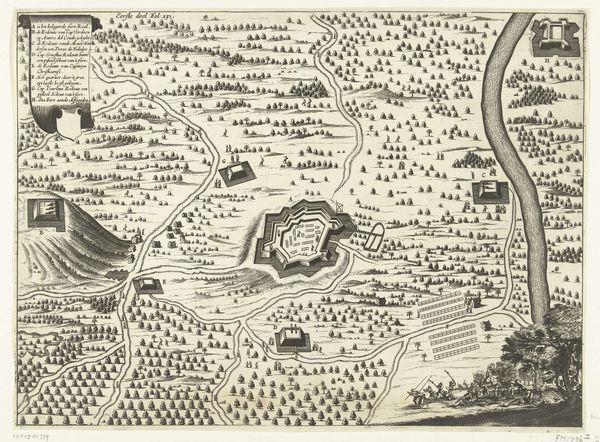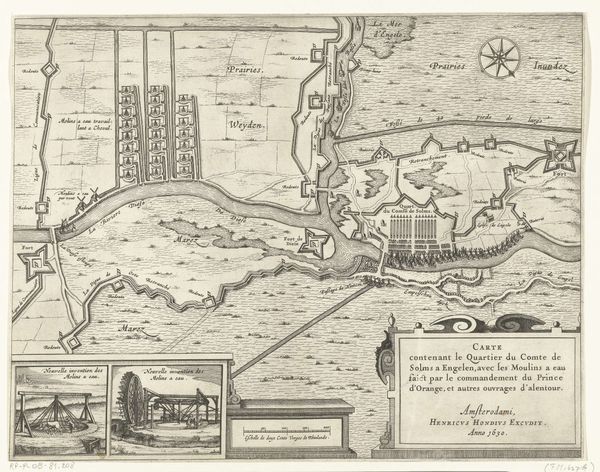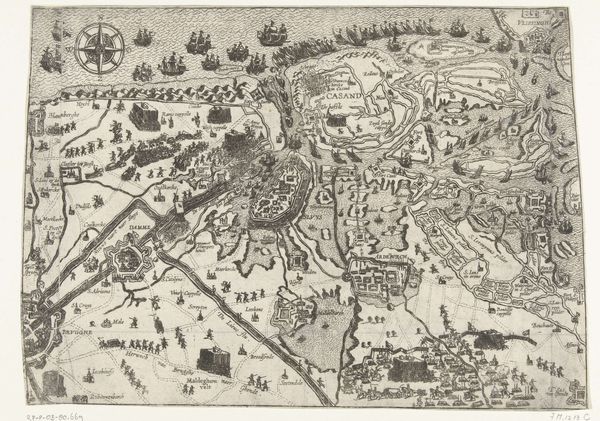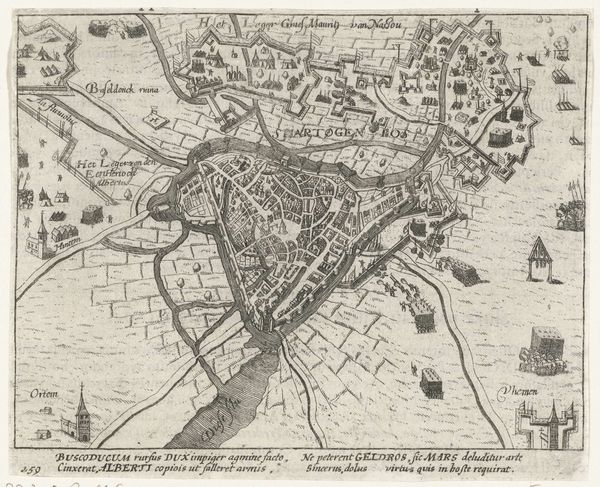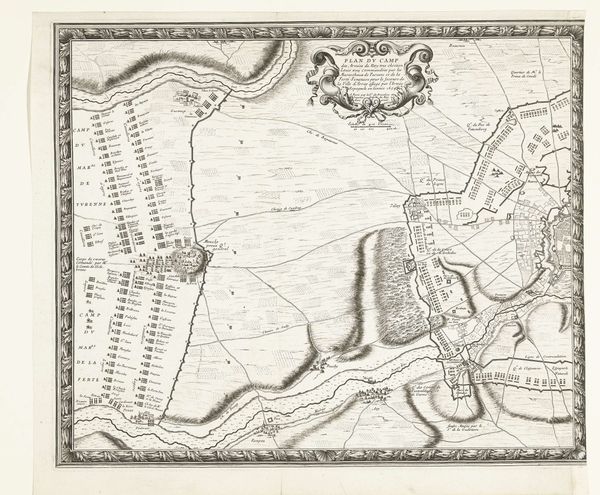
print, etching
#
baroque
#
dutch-golden-age
# print
#
etching
#
landscape
#
cityscape
#
history-painting
Dimensions: height 285 mm, width 358 mm
Copyright: Rijks Museum: Open Domain
This print, made in 1596 by an anonymous artist, depicts the siege of Hulst by Archduke Albrecht. It’s held in the Rijksmuseum, an institution that, like many others, plays a vital role in shaping our understanding of the past. This image offers insight into the military strategies and geopolitical tensions of the late 16th century in the Netherlands. The detailed rendering of fortifications, waterways, and troop placements reflects the period’s emphasis on cartography as a tool for both military planning and political propaganda. Consider how the artist uses visual cues to convey the power dynamics between the besieging forces and the besieged city. The Dutch Republic was then in the throes of the Eighty Years' War against Spain. Prints like these served not only as historical records but also as instruments of national identity formation and political mobilization. To truly understand this print, one could delve into military archives, period maps, and political pamphlets. The meaning of art is always contingent on its social and institutional context.
Comments
No comments
Be the first to comment and join the conversation on the ultimate creative platform.
